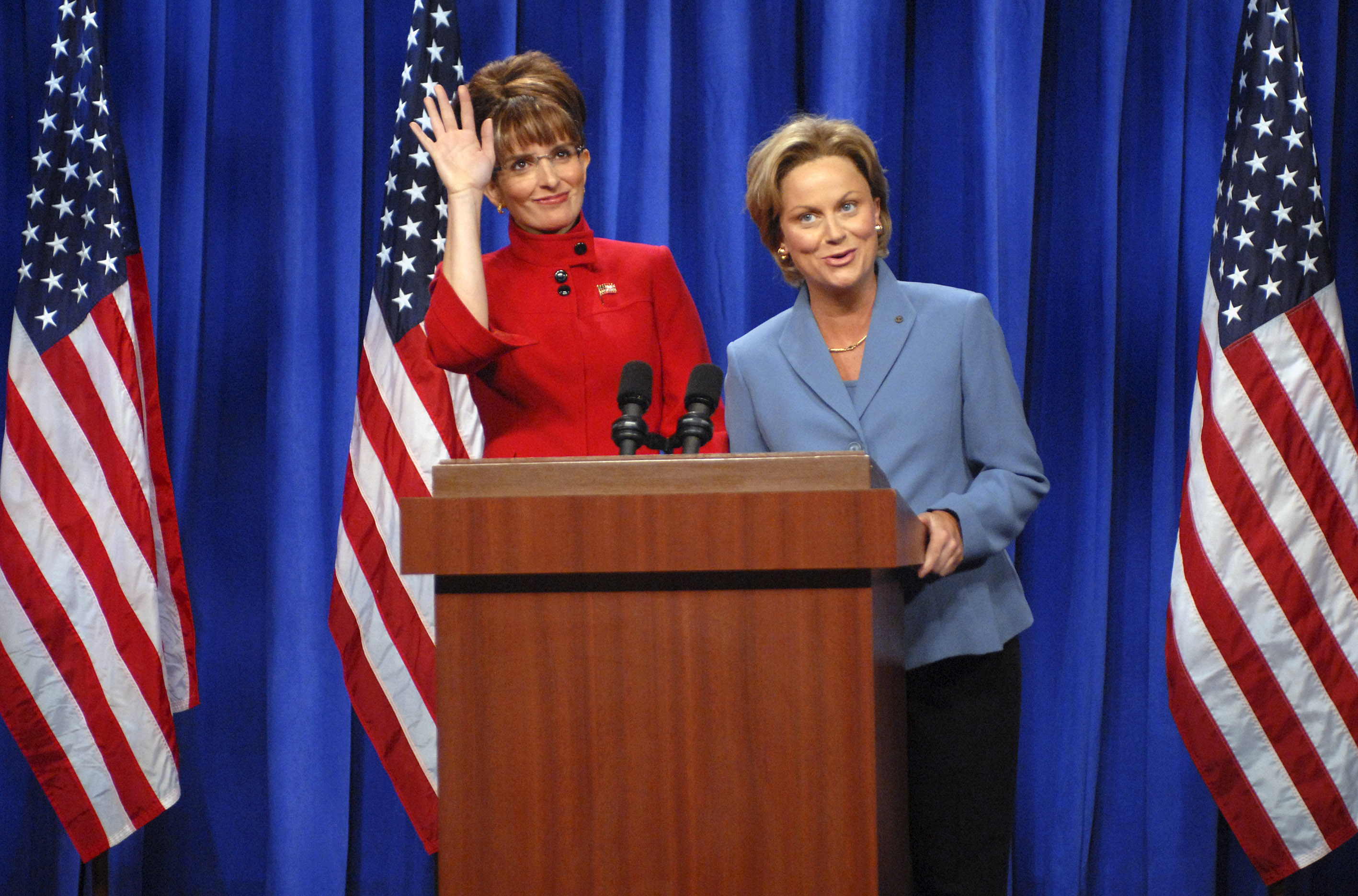
In 2008, John McCain sent the political world into a frenzy with his selection of Governor Sarah Palin as his running mate in the 2008 presidential election. As a relatively unknown candidate, Sarah Palin’s presence electrified the election, becoming the center of media attention due to her infamous interviews and debate gaffes.
“I can see Russia from my house!” is a phrase that became synonymous with Palin and began to identify her as politically and intellectually inept in the eyes of the general public.
However, this phrase was never actually spoken by Sarah Palin.
During an episode of Saturday Night Live when Tina Fey performed as Sarah Palin in a sketch, Fey herself uttered that famous phrase, forever changing the public’s perception of Sarah Palin through her pitch-perfect impression of the vice-presidential nominee.
Tina Fey may have single-handedly forged the public’s opinion of Sarah Palin through her own comedic portrayal, as she continually exaggerated Palin’s ties to Alaskan culture as well as her lack of knowledge about America’s role in global politics and economics.
That is the power of Saturday Night Live, a show that has often relied on political satire as a means of entertaining the millions who watch it on weekly basis. Political satire is a staple of the show, with political skits consistently being placed as the opening skit because of their prevalence and importance in the Saturday Night Live lore.
One of the most memorable moments in the history of Saturday Night Live was the 1999 presidential debate skit, which included then-cast-member Will Ferrell’s impression of George W. Bush and Darrell Hammond’s legendary impression of former Vice President Al Gore.
During this skit, Darrell Hammond continually referred to the existence of a “lock box’ in which he wished to store away the surplus in the government’s budget. This figurative “lock box” incited great laughter because it played upon the relatively safe and boring public perception of Al Gore and heightened it with its sensationalized take on his possible policies if he were to be elected president.
In this way, Saturday Night Live was able to reaffirm the public’s opinion of Gore while also characterizing former President Bush as charismatic despite his incoherence, a trait that would ultimately aid in his winning the 2000 presidential election.
Recently, Saturday Night Live has highlighted the eclectic cast of Republican presidential hopefuls through a variety of debates, reflecting the lack of a formidable frontrunner in the race for the Republican nomination.
Each week, the show has highlighted a different candidate in the debate skits, mirroring the constantly changing popularity of the candidates as Romney, Cain and Perry gain varying amounts of attention during the skits according to their prevalence in the media that corresponding week.
Saturday Night Live has become a barometer of America’s political landscape and plays an essential role by influencing the public’s perception of political figures to the extent that their characterizations can chip away at politicians’ attempts to forge a positive image, and by tearing away at the masks of insincere actions through its satirical impressions of important political figures.
